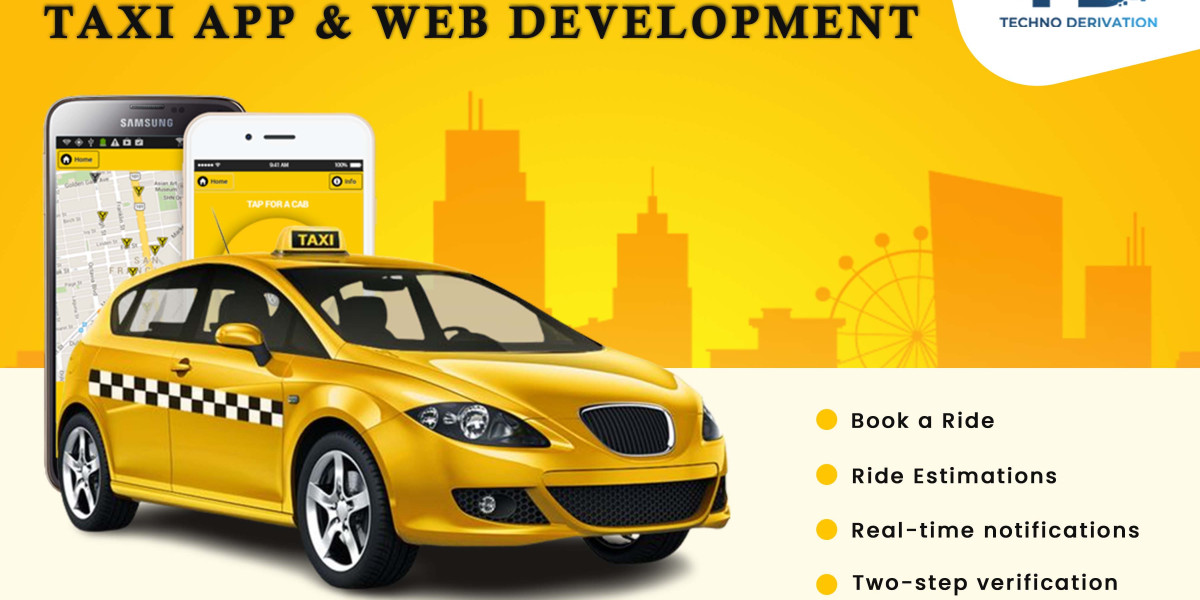Introduction:
In the rapidly evolving landscape of urban mobility, taxi booking app development has become a pivotal force, reshaping the way people access and experience transportation services. This article delves into the intricacies of taxi booking app development, exploring key features, challenges, and the transformative impact these applications have on modern transportation ecosystems.
The Rise of Taxi Booking Apps:
The advent of taxi booking apps has significantly disrupted the traditional taxi-hailing model. These apps leverage mobile technology, GPS, and digital payment systems to connect passengers with nearby drivers seamlessly. The user-friendly interfaces and real-time tracking features have made taxi booking apps a preferred choice for commuters seeking convenience and efficiency in their daily transportation.
Key Components of Taxi Booking App Development:
User-Friendly Interface: The success of a taxi booking app hinges on a user-friendly interface. Developers prioritize creating intuitive designs with easy navigation, ensuring users can effortlessly request rides, track their drivers, and complete transactions.
Geolocation and Mapping Services: Integration of precise geolocation and mapping services is essential for real-time tracking of both passengers and drivers. This functionality enables efficient matching, accurate estimations, and optimal routing for a seamless travel experience.
Secure Payment Gateways: Taxi booking apps involve financial transactions, making secure payment gateways a critical component. Developers implement robust encryption protocols to safeguard user payment information and ensure a secure transaction process.
Driver Management System: A comprehensive taxi booking app includes a driver management system that allows drivers to register, accept ride requests, and navigate efficiently. This system ensures a steady supply of drivers to meet passenger demand.
Rating and Feedback Mechanism: Incorporating a rating and feedback mechanism allows users to provide reviews and rate their ride experience. This feature enhances transparency, builds trust, and incentivizes drivers to maintain high service standards.
Push Notifications: Push notifications play a vital role in keeping users informed about ride confirmations, driver arrivals, and other relevant updates. This feature ensures timely communication and enhances the overall user experience.
Challenges in Taxi Booking App Development:
Regulatory Compliance: Taxi booking apps often operate in a regulated environment, and compliance with local transportation regulations can pose challenges. Developers must navigate complex legal frameworks to ensure app adherence to regional laws.
Driver and Passenger Safety: Ensuring the safety of both drivers and passengers is a priority. Taxi booking app development involves implementing safety features, such as driver verification, emergency buttons, and trip monitoring, to enhance overall security.
Scalability: As the user base grows, ensuring the scalability of the app becomes crucial. Developers need to design systems that can handle increased demand, ensuring optimal performance during peak hours.
Impact of Taxi Booking Apps:
Convenience and Accessibility: Taxi booking apps have democratized transportation, offering users a convenient and accessible means of commuting. Users can book rides with a few taps on their smartphones, reducing the reliance on traditional taxi-hailing methods.
Economic Opportunities: Taxi booking apps create economic opportunities for drivers by providing a platform to connect with passengers directly. This gig economy model enables flexible working hours and income generation for drivers.
Reduced Traffic Congestion: Efficient route planning and ride-sharing features contribute to reduced traffic congestion. Taxi booking apps optimize routes, encourage carpooling, and promote more sustainable transportation practices.
Technological Advancements: Taxi booking apps pave the way for technological innovations in the transportation sector. Integration with emerging technologies, such as autonomous vehicles and electric fleets, holds the potential to further transform urban mobility.
Conclusion:
Taxi booking app development is at the forefront of revolutionizing urban transportation, offering users unprecedented convenience, efficiency, and safety. As developers continue to innovate, addressing challenges and embracing emerging technologies, the future of taxi booking apps holds promises of enhanced scalability, improved safety measures, and an evolving landscape.








